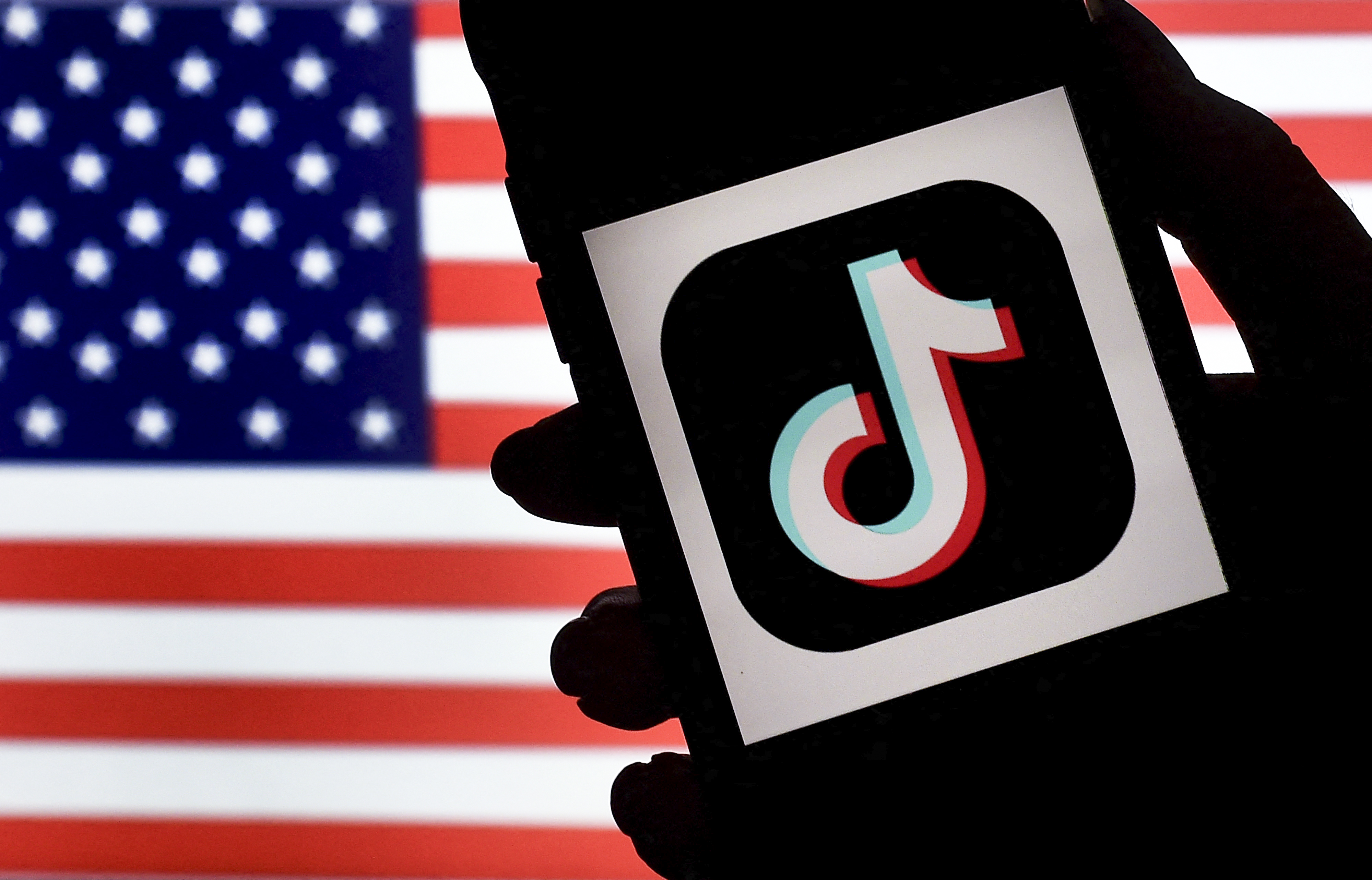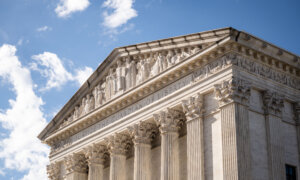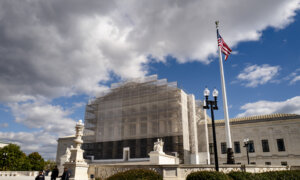A three-judge panel on Dec. 6 rejected TikTok, ByteDance, and a group of TikTok users’ challenge of a law that requires the app to cut ties with the Chinese communist regime in order to continue operating in the United States.
TikTok now faces a Jan. 19, 2025, ban, unless President Joe Biden issues a 90-day extension, as the company has argued that the Chinese regime will not allow its sale to a foreign company. It’s the result of the Protecting Americans from Foreign Adversary Controlled Applications Act (PAFACA) that Biden signed in April, which prohibits apps owned by foreign adversaries from operating in the United States.
The appeal was argued before the U.S. Court of Appeals for the District of Columbia Circuit Chief Judge Sri Srinivasan, Circuit Judge Neomi Rao, and Senior Circuit Judge Douglas Ginsburg.
Petitioners argued that the law was unconstitutional, violating users’ First Amendment rights to free expression.
The U.S. government argued that the law does not target content, only the ownership of the app under national security statutes.
“The Act satisfies strict scrutiny,” reads the opinion, written for the panel by Ginsburg. “We emphasize from the outset that our conclusion here is fact-bound.
“The multi-year efforts of both political branches to investigate the national security risks posed by the TikTok platform, and to consider potential remedies proposed by TikTok, weigh heavily in favor of the Act.”
TikTok signaled it would appeal the decision to the U.S. Supreme Court, though it’s unclear that the high court would accept an emergency petition before the Jan. 19, 2025, deadline.
“The Supreme Court has an established historical record of protecting Americans’ right to free speech, and we expect they will do just that on this important constitutional issue,” TikTok stated.
National Security Threat
The judges were persuaded that the Chinese communist regime presented a national security threat, citing high-profile cases of Chinese state-backed cyberattack and cyberespionage campaigns.
The government’s concern with TikTok began in 2018, and from 2019 onward, it held dozens of working meetings with TikTok and its parent company, ByteDance, to try to find a resolution short of divestment.
Washington was not satisfied that TikTok’s final proposal, which came in August 2022, would satisfy these security concerns. Subsequently, federal lawmakers introduced legislation to require ByteDance’s divestment of TikTok.
The root of that security loophole is that Chinese national security laws require all entities operating in China to turn data over to the Chinese Communist Party (CCP) if it so requests, even if it may violate laws in the country of the data’s origin.
The panel also rejected TikTok’s argument that it had been singled out under false pretenses, that data collection was not the government’s real concern.
The petitioners did not “identify any company operating a comparable platform in the United States with equivalent connections to the PRC,” the judges wrote, finding that the executive and legislative branches’ multiyear efforts to work with TikTok toward a solution showed that it was a legitimate “pressing concern.”
PRC refers to communist China’s official name, the People’s Republic of China.
A federal court had already upheld PAFACA, rejecting arguments it violated the First Amendment.
Judges Say CCP Could Violate Users’ First Amendment Rights
The judges also ruled that potential content manipulation by the Chinese regime could infringe on Americans’ First Amendment rights.
“In this case, a foreign government threatens to distort free speech on an important medium of communication,” the opinion reads. “Using its hybrid commercial strategy, the PRC has positioned itself to manipulate public discourse on TikTok in order to serve its own ends. The PRC’s ability to do so is at odds with free speech fundamentals.”
The judges wrote that the law does not attempt to influence content on TikTok, but only acts to prevent a foreign adversary from influencing this content. PAFACA does not address content and would allow TikTok to host the same content under new ownership.
TikTok had argued that the government could not prove the Chinese regime had manipulated content on the app. The government had submitted piecemeal evidence of content manipulation, which it admitted did not point to a particular source, along with evidence of the CCP’s foreign influence campaigns. Judges noted that TikTok would not deny allegations that the Chinese regime was manipulating content.
“Notably, TikTok never squarely denies that it has ever manipulated content on the TikTok platform at the direction of the PRC,” the opinion reads. “Its silence on this point is striking.”
The government has a history of enacting similar restrictions on national security bases, the judges wrote, pointing to other statutes restricting foreign control of communication licenses.
Lawmakers Respond
House Select Committee on the CCP ranking member Rep. Raja Krishnamoorthi (D-Ill.), who co-authored PAFACA, said the ruling was a positive one for national security.
“With today’s opinion, all three branches of government have reached the same conclusion: ByteDance is controlled by the Chinese Communist Party, and TikTok’s ownership by ByteDance is a national security threat that cannot be mitigated through any other means than divestiture,” he stated.
“Every day that TikTok remains under the Chinese Communist Party’s control is a day that our security is at risk.”
House Select Committee on the CCP Chair Rep. John Moolenaar (R-Mich) stated the divestiture would end the CCP’s ability to “exploit ByteDance’s control over TikTok to undermine our sovereignty, surveil our citizens, and threaten our national security.”
Moolenaar expressed confidence that President-elect Donald Trump could facilitate a sale of TikTok to an American company.
“I am optimistic that President Trump will facilitate an American takeover of TikTok to allow its continued use in the United States and I look forward to welcoming the app in America under new ownership,” he said.
On the campaign trail, Trump had echoed the national security concerns about TikTok but said he would be able to get the app to sell. He had said he was not in favor of a ban, as the app’s exit from the market could give social media giants such as Meta a monopoly.
Trump recently met with Meta CEO Mark Zuckerberg at Mar-a-Lago, but details of the discussion were not publicized.
Former Vice President Mike Pence, founder of Advancing American Freedom, commended the ruling and urged Trump to hold TikTok to the divest-or-ban law.
“The incoming Trump administration must be clear-eyed about the strategic and economic threat China is to our nation, and uphold the divestment of TikTok from the CCP for the security and privacy of the American people,” he wrote in a post on social media platform X.
Canada has also placed TikTok under national security review and may ban the app.














